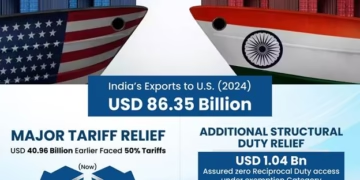- Strong 2018 performance, guidance delivered
- Revenues € 64 billion; EBIT Adjusted € 5.8 billion; Free Cash Flow Before M&A and Customer Financing € 2.9 billion
- EBIT (reported) € 5.0 billion; EPS (reported) € 3.94
- A380 deliveries to cease in 2021
- A400M programme re-baselining negotiated
- 2018 dividend proposal € 1.65 per share, up 10% from 2017
- 2019 guidance confirms growth trajectory
- Airbus SE (stock exchange symbol: AIR) reported strong Full-Year (FY) 2018 consolidated financial results and delivered on its guidance for all key performance indicators.
“Though 2018 had plenty of challenges for us, we delivered on our commitments with record profitability thanks to a strong operational performance, particularly in Q4,” said Airbus Chief Executive Officer Tom Enders. “With an order backlog of around 7,600 aircraft, we intend to ramp-up aircraft production even further. However, due to the lack of airline demand we have to wind down production of the A380. This is largely reflected in the 2018 numbers. On A400M, we succeeded in re-baselining the programme with our government customers and their domestic approval processes should conclude in the coming months. All in all, we have achieved significant de-risking of the A400M in 2018. The strength of last year’s achievements is reflected in our record dividend proposal. In sum, Airbus stands on a solid growth trajectory and our helicopter, defence and space businesses are also in good shape as the new management team under my successor Guillaume Faury gets ready to take over.”
As of 1 July 2018, the A220 aircraft programme has been consolidated into Airbus.
Net commercial aircraft orders totalled 747 (2017: 1,109 aircraft), including 40 A350 XWBs, 27 A330s and 135 A220s. Showing the underlying health of the market, the order backlog reached an industry record of 7,577 commercial aircraft at year-end, including 480 A220s.(4) Net helicopter orders increased to 381 units (2017: 335 units) with a book-to-bill ratio above 1 in terms of both value and units. Order intake included 15 H160 and 29 NH90 helicopters. Airbus Defence and Space’s 2018 order intake of around € 8.4 billion included the Eurofighter for Qatar, four A330 MRTT tanker aircraft and two new generation telecommunication satellites.
Consolidated order intake(4) in 2018 totalled € 55.5 billion with the consolidated order book(4) valued at € 460 billion on 31 December 2018 under IFRS 15.
ADVERTISEMENTConsolidated revenues increased to € 63.7 billion (2017: € 59.0 billion(1)), mainly reflecting the record commercial aircraft deliveries. At Airbus, a total of 800 commercial aircraft were delivered (2017: 718 aircraft), comprising 20 A220s, 626 A320 Family, 49 A330s, 93 A350s and 12 A380s. Airbus Helicopters delivered 356 units (2017: 409 units) with revenues stable year-on-year on a comparable basis despite the lower deliveries. Higher revenues at Airbus Defence and Space were supported by its Space Systems and Military Aircraft activities.
Consolidated EBIT Adjusted – an alternative performance measure and key indicator capturing the underlying business margin by excluding material charges or profits caused by movements in provisions related to programmes, restructurings or foreign exchange impacts as well as capital gains/losses from the disposal and acquisition of businesses – totalled
€ 5,834 million (2017: € 3,190 million(1)), reflecting the strong operational performance and programme execution across the Company.Airbus’ EBIT Adjusted increased to € 4,808 million (2017: € 2,383 million(1)) reflecting the higher aircraft deliveries. The strong improvement compared to 2017 is driven by progress on the learning curve and pricing for the A350 as well as the A320neo ramp-up and pricing premium. Currency hedging rates also contributed favourably.
On the A220 programme, the focus remains on commercial momentum, the production ramp-up and cost reduction. A320neo Family deliveries increased to 386 aircraft (2017: 181 aircraft) and represented over 60% of overall A320 Family deliveries during 2018. The first long-range A321LR was delivered in the fourth quarter. Deliveries of the Airbus Cabin Flex version of the A321 are expected to increase in 2019 although the ramp-up will remain challenging. Further upgrades of the Pratt & Whitney GTF engine for the A320neo are due to arrive in 2019. Airbus continues to monitor in-service engine performance. Overall, the A320 programme is on track to reach the monthly targeted production rate of 60 aircraft by mid-2019 with rate 63 targeted in 2021. On the A330neo programme, the first A330-900s were delivered and the smaller A330-800 conducted its maiden flight in the final quarter of 2018. In 2019, A330neo deliveries are due to ramp-up. Airbus is working closely with its A330neo engine partner to deliver on customer commitments.
Airbus reports strong Full-Year 2018 results, delivers on guidance
0
Related Posts
Stay Connected
Recent News
ADVERTISEMENT
© 2018 | Fortune World Media | MEDIA & ENTERTAINMENT CO. IN | Powered by Raja's Digital
